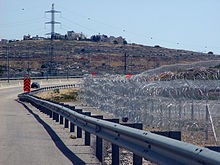Dr. Thomas Dalton is an American academic known for his extensive commentaries on controversial topics. Today he joins the Occidental Observer for a stimulating Q&A where we discuss his views on Jews, anti-Semitism, and Jewish power structures.
Matthews: ‘Anti-Semitism’ is frequently employed as a derisive term to shame thinkers like yourself who adopt an unflinching approach to criticizing Jewish power structures. Do you think that this epithet is justified?
Dalton: This all depends on what we mean by ‘anti-Semitism.’ Let’s look at a bit of history. The Semites were the people traditionally descended from Noah’s (of the ark) son Shem, who were described as ‘Shemites’ or Semites. Some nine generations after Shem came Abraham, traditional patriarch of Christianity, Judaism, and Islam. Abraham was said to live circa 2000 BC, which would put Shem at 4000 BC or earlier—although such genealogies have almost zero credence.
Abraham supposedly had two sons: Ishmael (distant ancestor to the prophet Muhammad) and Isaac. Isaac in turn had two sons: Esau (progenitor of the Edomites) and Jacob (progenitor of the Israelites/Jews). A few generations after Jacob came Moses, who is said to have lived around 1500 BC. I would note that all this is from Jewish tradition, and it has no historical or anthropological foundation; in all likelihood, all these individuals (apart from Muhammad) are fictitious.
Anyway, technically speaking, ‘Semites’ are a potentially huge group of people, including Jews and indigenous Arabs across the near Middle East. They all speak a ‘Semitic’ language, like Hebrew or Arabic. Arabic-speakers alone number over 300 million, and spread across much of the Middle East and North Africa. Today, though, the term is not frequently used, owing to its vagueness and lack of substantial basis.
But of course, anti-Semite is widely used today, which is interesting. The term emerged in Germany in the 1860s and 1870s and was employed both by Jews (such as Steinschneider) and Gentiles (such as Wilhelm Marr). There, for whatever reason, ‘Semite’ came to mean ‘Jew’ alone, distinct from all the other descendants of Shem. By 1879 there was an “anti-Semitic League” in Germany, which meant formal opposition to Jewish influence and Jewish power.
My dictionary has a very simple, one-line definition of anti-Semitism: “hostility toward or discrimination against Jews as a religious or racial group.” This, I think, is not quite right. ‘Shemite,’ or ‘Semite,’ is a biological—and hence racial—term. Anti-Semitism thus opposes Jews as an ethnic group, rather than as a religion. In the nineteenth century, this distinction was relatively unimportant; at that time, all ethnic Jews were religious Jews, and vice versa. Today, of course, it is different: Many ethnic Jews are non-religious, and some (very few) Gentiles adhere to the Jewish religion. In the present day, the main concern is with ethnic Jews, regardless of their religion.
As we know, Jews have appropriated the term ‘anti-Semitism’ to apply to anyone they view as a threat, for virtually any reason. An anti-Semite is thus an opponent or enemy of the Jewish people, as a collective. And since Jews get to determine who is an opponent, the term can mean anything they want it to mean.
Speaking for myself, I oppose Jewish dominance and virtual rule in the Western nations—countries in which they are historic foreigners and infiltrators. I guess that makes me an anti-Semite; so be it. I also oppose “Jewish power structures” in Israel when they commit war crimes and crimes against humanity. So that makes me a double anti-Semite. So what? On this basis, any thinking, moral person ought to be an anti-Semite. We need to make that term a badge of honor.
Matthews: Could you elaborate on the politics behind applying the charge of anti-Semitism solely to critics of Jews when the Palestinians are also Semitic?
Dalton: Well, yes, Palestinians speak a dialect of Arabic, and hence are Semitic speakers, and thus are technically Semites. But again, so too are over 300 million other people. But it makes no sense to be anti-Semitic in terms of language. So the only meaningful sense of ‘anti-Semitism’ is biological, or ethnic, or racial. Thus we are back to ‘descendants of Shem,’ or something like that.
But if we believe the Biblical nonsense, then we can try to label other groups in the same way. Many Middle Easterners could be called ‘Hamites’ (descendants of Ham) or ‘Japhetites’ (descendants of Japheth)—named for the other two sons of Noah. But it’s all just mythology anyway, and so the term has no real substance. I don’t think there is any politics behind it. Jews have appropriated the term ‘anti-Semitism,’ and there is little hope of changing that.
Matthews: You have written profusely on Jewish issues. What sparked your interest in studying their influence?
Dalton: For me personally, it goes way back, at least to my elementary school days. I can recall writing a very early book report on Einstein, in which I mentioned in passing that he was a Jew—which of course, he was. I don’t think I even knew what a Jew was; I never encountered any until college. But my teacher was aghast: I had outed a Jew! She rebuked me in her little written comments, something to the effect that “that doesn’t matter, it’s not relevant, …” I was shocked. Here I was, a mere kid, writing what I read in some book somewhere—a true fact—and I was attacked for it. There was a lesson in that, and it wasn’t the one the teacher intended.
More came in middle school. I can recall one of the guys calling someone a “Schweinehund” (literally, a pig-dog), and the teacher jumping all over him because he used a “Nazi” word. I was like, wow, what’s a Nazi? More lessons. Incidents like this got me interested in Nazism and Hitler, and I really became intrigued by the whole World War Two story; for me, the Germans were always the more interesting characters. In high school, I wrote a major (and sympathetic) English paper on Hitler, and actually got a high grade for it; I can’t imagine that happening today.
Then into college, I lived in the student dormitory for my first two years. I remember well the loud and obnoxious guys “from New York,” which, for a long time, prejudiced me against all New Yorkers. Only later did I find out that the “guys from New York” were virtually all “Jews from New York”. Then I recalled the anti-Semitic scrawlings and swastikas on the bathroom stalls, and it all made sense.
Later, in my various travels, I encountered seemingly random individuals who, for some reason, just made my skin crawl. They were utterly repulsive. I had never met anyone like these people—who I later realized were Jews. Not long after, I started to notice their role in government, and in particular their over-representation. Then the same in Hollywood, and more of the same in media.
Not long after that, I started thinking critically about the Holocaust. I had never given it much thought, and basically accepted the orthodox view without much consideration. This was in the “pre-indoctrination” era, so I basically never really covered it in school. I studied technical subjects as an undergrad, and so, again, never had to address it. But I knew something was wrong with the story, and eventually started digging into it. The end result, several years later, was my book Debating the Holocaust.
About the same time, I got more active against Israeli crimes in the Middle East, and began to support BDS actions against Israel. It was then that I started to feel the first real push-back against me personally. Once again, more valuable lessons.
Basically, at some point, I began to realize that I was virtually surrounded: Jews on all sides, at all levels of society, calling the shots—and this, even though they were a mere 2% of so of the US population (and less in the state where I lived). Then I knew that it was a major problem that had to be addressed on multiple levels.
Matthews: Some contend that Jews are overrepresented in major movements and industries due to higher intelligence and concentration in urban areas, but you dismiss this argument. Why is that?
Dalton: It’s true that Jews, as a group, score higher on IQ tests than the average White person. If the White average is 100, I believe that Jews score about one standard-deviation above this, which means an average score of around 115. This is a huge difference. But an IQ of 115, in itself, is not that impressive. So-called ‘genius’ level starts at about 140, and statistically, a higher percentage of Jews will be in this category than Whites. But of course, they are still a small minority—around 2%, as I said—and so the total number of White geniuses is significantly higher than the corresponding number of Jews.
Still, when you encounter an ‘average Jew,’ he or she will likely seem quite intelligent. I don’t dismiss any of this, and it does account for much of Jewish success.
But intelligence alone is not the sole measure of success, as we all know. Jews also possess a number of stereotypical and distasteful characteristics, like aggression, assertiveness, selfishness, greed, ambition, and narcissism. For most people, these traits would be vices; but for Jews, they work to their advantage. Jews also are more prone to mental illness than the population at large, probably due to centuries of in-breeding within a relatively tight gene pool. And most importantly, they are highly clannish. This is a strange concept to most American Whites, who are, generally speaking, individualists—that is, we tend to judge people as individuals, on their own merits. But Jews will seek out and cooperate with other Jews, to the exclusion of non-Jews. This tribal, in-group preference also accounts for much of their success. They generally view Gentiles with distaste, distrust, and even disgust. Literally for centuries, Jews have been known for their “hatred of mankind.” And it shows.
In a sort of pathological twist, Jews actually enjoy this antipathy. They actually seem to like being hated! It keeps them close, compact, and unified. It builds their in-group. And it promotes the ‘victim mentality’ that they love to exploit. So they get multiple benefits from being detested. It’s sick.
But to close on your question, the overrepresentation comes from (a) above average intelligence and cleverness, (b) immoral treatment of others, meaning, a willingness to exploit and deceive with impunity, and (c) in-group synergies. Again, this does not apply to every individual Jew, but it holds for Jews in general, and is particularly relevant for those at the top of the social hierarchy.
Matthews: Your latest book, Eternal Stranger: Critical Views of Jews and Judaism through the Ages (2020), forcefully posits that, despite residing in Western civilization for centuries, Jews have remained as outsiders. What explains this development?
Dalton: That’s a long story, but in short, Jews have developed, over the centuries, the ability to manipulate and exploit people everywhere. This is only possible if you dislike or detest the people you are working with. Jews have learned how to profit by treating others as inferiors, and consequently the masses, in turn, treated the Jews as strangers, as outsiders, and as infiltrators.
On top of this, for centuries, when Europe was dominated by Christianity, Jews were also religious outsiders because they wouldn’t accept Jesus as Messiah. But this aspect has faded in the past century, as the US and especially Europe grew less religious.
Jews furthermore have discovered that there is much profit to be made from exploiting people in distress—as when people are penniless, or hungry, or at war. This again is a very old story, reaching back to Old Testament days. More troubling, Jews also discovered that, by manipulating events to their liking, they could actually create distress—that is, they learned how to put people under pressure, to make them suffer, to make them needy, and to make them fear for their wellbeing and even their lives. Under such conditions, Jews stand to make huge gains in wealth, influence, and power. This has been true for centuries, and it’s still true today.
What is largely unknown—and the reason I wrote that book—is the fact that many of the most prominent and brilliant thinkers in history have recognized this malicious Jewish nature. This is important because it shows that critics of the Jews are not just a handful of “neo-Nazis” or crackpot haters, but rather intelligent and insightful men of history. And not just in recent times, but literally for millennia—reaching back at least to 300 BC. In Eternal Strangers, I took the trouble to hunt down and verify the relevant anti-Jewish comments from dozens of perceptive critics. All my quotations are confirmed and properly sourced. It is a truly damning story, one with huge repercussions for the present day.
Matthews: Kevin MacDonald has written widely on the involvement of Jews in movements hostile to the interests of the West. What do you think motivates their activism?
Dalton: It’s basically what I said above: that Jews are eager to exploit and manipulate people for their own personal gain, and for the benefit of Jews generally. They are attracted to the West because it is a source of productive wealth. The West has also created potent science and technology, which the Jews desire; such things have a great potential for further manipulation and control. And there is (or was) a kind of cultural greatness about the West that the cultureless Jews sought to appropriate.
But there is a deeper issue: Jews see Westerners as their primary threat. Ever since the days of the Roman Empire, it was the Westerners, the Europeans, the Whites, who have been their most dangerous opponents. Being massively outnumbered, Jews have long realized that they would have to undermine the West on moral, religious, and ideological grounds. In recent years, they have also undermined us on racial grounds, by promoting mass immigration from Africa, the Mid East, and Latin America.
I mean, just look at Hollywood, and the entertainment industry generally. There is nothing more degrading than the endless stream of utter garbage produced by Hollywood Jews—unless we count the insipid filth that passes for popular music (hip-hop, especially; if you doubt me, check out the lyrics to the recent hit “WAP”). One need not be a prude to see how corrupting it is to live in a society that promotes deviant sexuality, Internet porn, online gambling, recreational drug use, and moral offenses of the most diverse kind. And there is a strong Jewish hand behind all these things. For them, it’s a double win: lots of money to be made, and lots of Westerners corrupted in the process. It could hardly be better.
Matthews: In Debating the Holocaust, you give a fair hearing to mainstream arguments and sobering critiques, yet despite the impartial tone, many consider it to be an anti-Semitic text. Why are people hesitant to challenge orthodox assumptions of the Holocaust?
Dalton: The Holocaust is the Achilles’ Heel of the global Jewish Lobby. It is their central guilt tool. It was the final justification for the creation of Israel. It is the source of countless billions in ‘reparations’—well over $120 billion to date. It allows them to promote their victimhood status throughout the West, and to exploit peoples’ sympathies. It is the true “Big Lie” of the present day. Consequently, undermining the standard Holocaust story is one of the most potent actions we can take today, to bring down Jewish power.
Interested readers will have to read my book, but in brief, there are many serious holes in the orthodox view. Start with the fact that the supposed deaths of 6 million Jews, over about five and a half years, comes to nearly 3,000 deaths per day—every day, 24/7, rain or shine. Amidst a global war. It hardly seems plausible on the face of it. Then we note that killing people is relatively easy, but disposing of their bodies is much, much harder. Even a modern crematorium cannot reduce a human body to ash; large bones always remain. Crude Nazi ovens could do much less—not to mention the “open-air fires” that are said to have consumed hundreds of thousands of bodies (almost 600,000 at Auschwitz alone).
The famed gas chambers could never have worked in the manner described. They were illogical from the start: cram hundreds of people into an enclosed room and then sprinkle cyanide pellets on their heads. Right—and then what? Now you’ve got hundreds of dead bodies intermixed with highly toxic pellets that continue to emit gas for hours. Who’s going in to clean out the bodies? Even Jewish inmates are no use dead.
And the supposed diesel exhaust chambers that were used at Treblinka, Sobibor, and Belzec are even more ridiculous. For one, you can’t pump engine exhaust into an enclosed room; the engine will simply stall. But more importantly, diesel exhaust gas has far too little carbon monoxide, and far too much oxygen, to kill people in any reasonable time. Gasoline engines can do the job, but the orthodox sources are adamant: the Germans used diesel engines. This whole aspect is made even more absurd when we realize that some 2 million Jews allegedly died by diesel gas, as opposed to some 1 million by cyanide. In the end, it appears that the actual overall Jewish death toll was something like 500,000—far less than the proclaimed 6 million.
These are only a few of many unresolved issues. Again, interested readers should see my Debating book, or read my short version: Holocaust: An Introduction (2016). Both can be found on my personal website (www.thomasdaltonphd.com), and at my primary publisher site, www.clemensandblair.com.
In view of all this, I am continually surprised that some in the dissident right and White nationalist movement don’t want to address the Holocaust. They seem to think that, in essence, the Jews have won the ideological battle, and that any critic—any “Holocaust denier”—is automatically viewed as a nutjob. (I find it odd that people who are routinely labeled as vicious anti-Semites are suddenly afraid of being called a “denier,” but such is life.) More concretely, they worry about such things as false testimony, doctored evidence, outright fraud, and so on. Sure, these exist. But most of the revisionist case is based on fact, hard science, and elementary logic. The basic case is quite clear and compelling. You don’t need to have a PhD in science or math to follow the story. My little book Introduction can be read by any college undergrad, and my Debating is not much harder.
Finally, we need only consider how much effort the global Jewish Lobby puts into squelching Holocaust revisionism. They know how important the orthodox story is to their grip on power. They pass laws, they burn books, they block websites, they fine and imprison people, all to stop the counter-story from getting out. But they are losing. Revisionism is winning the day. The more that we can bring this to light, the better for everyone.
Matthews: Can you identify broader trends of suppressing information critical of Jewish power structures, beyond the Holocaust?
Dalton: Sure: almost any exposure of Jewish influence, Jewish wealth, or Jewish power is suppressed. Even ‘outing’ Jews is forbidden. Even mentioning names like ‘Soros’ or ‘Rothschild’ in the wrong context is forbidden. Any look at media figures, leading billionaires, Hollywood moguls, Big Tech luminaries, or top political donors is sure to include a massively disproportionate Jewish presence. But this fact will never be mentioned—not by the left, not by the right, not by Democrats, not by Republicans, not by CNN, and not by Fox News. I exposed some of this dominance in a recent TOO essay, “Confronting the Judeocracy.” Note: this is not even talking about “criticism,” but rather simply naming the Jews as Jews. That fact alone is too much to swallow.
When you look at the Jewish role in political and financial corruption, ethically dubious industries, control of public opinion, foreign wars, and so on, you then get a situation that is utterly unmentionable—except by those of us with a bit of courage and some backbone.
One of my favorite examples is the Jewish role in warfare, both present-day and historically. It has long been a cliché that “Jews caused all the wars in history,” but few have taken the time to confirm and document this situation. I did it, and the result was my book The Jewish Hand in the World Wars (2019). My focus there is on the two World Wars, but I also look at conflicts before and since. Again, it was remarkable to me how much information is never discussed, never examined, never found in text books. It is suppression by omission; this is their favored tactic.
Matthews: Do non-Jewish leaders support the state of Israel to advance the goals of Zionism, or is doing so merely financially rewarding and not indicative of Gentiles genuflecting to Jewish powerbrokers?
Dalton: We can never really know what induces so many Gentiles, of all races, to yield to Jewish temptation. I suspect it is something like a ‘carrot-and-stick’ strategy: the carrot is big money and fame, and the stick is unemployment and shame. Probably very few influential Gentiles know or care much about Zionism; there are, of course, millions of so-called Christian Zionists, most White, but they seem to not hold positions of power. Equally probable is that very few influential Gentiles have real affection or concern for Jews. Most are probably uncomfortable with Jews at best, and secretly hate them at worst. But they play along—for the money and fame, and for fear of losing their jobs.
Matthews: How do we distinguish between “anti-Semitism” and legitimate explorations of Jewish Power?
Dalton: The implication here is that anti-Semitism involves “illegitimate” explorations of Jewish power—a point that I would dispute. All such examinations are legitimate, whatever the motive. Jews have caused so much pain and suffering over the millennia that no exposé can be unwarranted or too harsh.
Matthews: Your trenchant critiques of Jewish power structures are legendary, but what do you have to say about wokeness, Covid-19 hysteria, and the religion of anti-whiteness?
Dalton: Huge issues here, for sure. On the Covid-19 hysteria, things are still a bit too fluid and muddled to draw big conclusions. Apart from the Jewess now running the CDC (Rochelle Walensky), there seems to be a minimal Jewish role here. It wrote a recent piece on the uselessness of masks (“The emperor’s new mask”), and I suspect the vaccines are almost as bad. Never before have we been able to vaccinate against a coronavirus, and I would guess that these recent ones will prove either marginally effective or short-lived. Evidence is increasing that the virus itself was generated or manipulated in a Chinese lab, with potentially huge implications.
‘Wokeness’ is a hypersensitivity to all issues favored by Jews: gender confusion, gay rights, interracial mixing, mass immigration, pity-mongering, and other generally politically-correct matters. Jews push a woke culture because it serves their interests; a diverse, multiracial, multicultural, sexually-confused nation is one that can scarcely muster the strength to deal with the Jewish Question.
In particular, Jews like to portray themselves as great friends to Blacks, Hispanics, and other “oppressed” minorities. In reality, Jews hold nothing but contempt for such people; we need only recall the leading Jewish role in the American slave trade. Jews are expert at using and coopting minorities for their own ends.
And to your other point, they use minorities in a kind of war against Whites. Holocaust-guilt seems to have reached the saturation point, so prominent Jews now have turned to racial-guilt in their battle against Whites. Whites are guilty of “systemic racism,” and hence must continually feel bad about themselves and their race, and must continually atone for this original sin. Again, it puts Whites on the defensive and minimizes any risk of a mass White Nationalism—or so they believe. Some of us suspect that this Jewish strategy may backfire. Time will tell.
But these and related issues are sure to resurface in the future. Jewish potential for mischief is endless. It takes a fair amount of reading and thinking to get a grip on this situation, and on the radical solutions that are likely necessary. Again, I would point interested readers to my personal website (www.thomasdaltonphd.com), and to the Clemens & Blair publishing site, which handles many of my books (www.clemensandblair.com). There are lots of good sources there, and many profitable leads to follow. Thanks for the opportunity to chat.
Matthews: Thank you!
Thomas Dalton, PhD, has authored or edited several books and articles on politics, history, and religion, with a special focus on National Socialism in Germany. His works include a new translation series of Mein Kampf. For all his writings, see his personal website www.thomasdaltonphd.com.














 The Guardian
The Guardian 
 The “incredibly dangerous” African enricher Esa Juwara
The “incredibly dangerous” African enricher Esa Juwara






